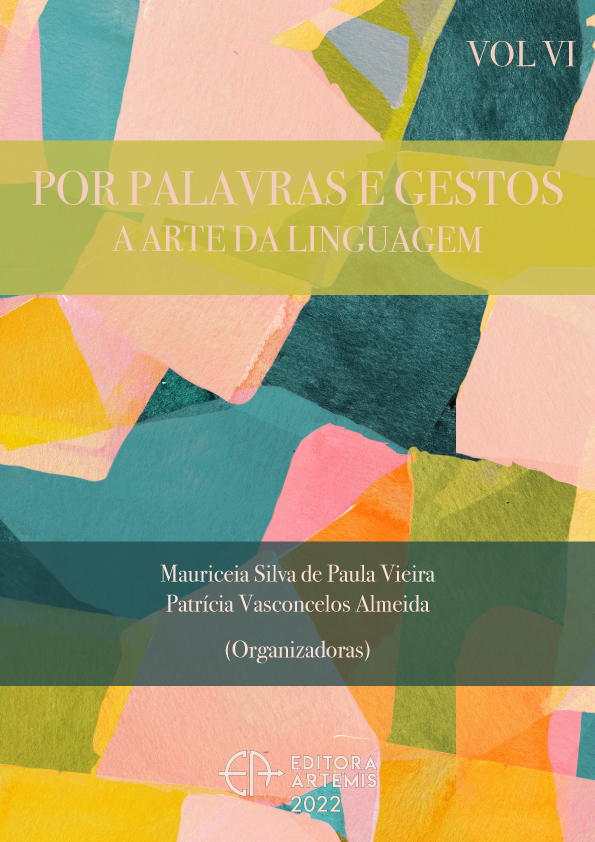
PRÁTICAS DE LEITURA E ESCRITA DE LÍNGUA PORTUGUESA NO PROGRAMA RESIDÊNCIA PEDAGÓGICA NA UNIPAMPA
Este estudo tem por tema práticas de leitura e escrita de Língua Portuguesa, observadas no Programa Residência Pedagógica, da UNIPAMPA, Bagé, RS. O núcleo de Língua Portuguesa contou com 23 residentes, alunos do curso de Letras – Português e Literaturas de Língua Portuguesa da instituição; 3 preceptoras, professoras da Educação Básica e comigo - docente orientadora do núcleo. As professoras tiveram a tarefa de orientar os residentes no planejamento pedagógico e nas práticas de ensino realizados nas escolas envolvidas. A prática analisada foi realizada em uma das escolas públicas em que atuamos. Ela apontou para algumas dificuldades, mas também para encaminhamentos que confirmam a possibilidade de superá-las. Entendemos que o sentido se constitui na interação, nas diferentes situações de uso da língua, por isso nossa unidade de análise é o texto. Pensando em um percurso aplicado que supõe leitura e escrita, as residentes envolvidas, inicialmente, planejaram a leitura de um texto, mas escolhido aleatoriamente, dissociado da realidade dos alunos e a respeito do qual não havia previsão de desenvolvimentos. Resultado: a leitura esteve isolada de outras práticas de linguagem. Recuperamos, na orientação, a necessidade de refletir sobre relações possíveis entre os gêneros estudados, o que determina uma seleção, não improvisada, mas necessária e subordinada ao desenvolvimento de competências de leitura, de escrita e de análise linguística que os gêneros selecionados demandem. Essa discussão encaminhou as residentes para - partindo de um fato marcante na comunidade: um acidente de trânsito que envolveu uma aluna da escola – a seleção de vídeos e entrevistas que tematizaram acidentes de trânsito. A partir dessas leituras, os alunos elaboraram questões para suas entrevistas e aplicaram-nas a entrevistados de sua escolha; depois, produziram vídeos dessas entrevistas. Todos constatamos que mesmo alunos que pouco participavam da aula de Língua Portuguesa se envolveram e participaram da atividade. Refletimos então sobre a ideia de que o texto não é meramente o lugar de informação – ou de transmissão de informação -, mas de interação, de constituição de sentido. Também sobre a ideia de que a aula de língua deve ser significativa e levar em conta as experiências de vida dos alunos.
PRÁTICAS DE LEITURA E ESCRITA DE LÍNGUA PORTUGUESA NO PROGRAMA RESIDÊNCIA PEDAGÓGICA NA UNIPAMPA
-
DOI: 10.37572/EdArt_2508226138
-
Palavras-chave: ensino, interação, leitura, escrita
-
Keywords: teaching, interaction, reading, writing
-
Abstract:
The theme of this study is reading and writing practices in Portuguese, observed in the first edition of the Pedagogical Residency Program, at UNIPAMPA, Bagé, RS. The Portuguese Language nucleus had 23 residents, students from the Languages - Portuguese and Portuguese Language Literature course at the institution; 3 preceptors, teachers of Basic Education, and myself - the professor advisor guiding the nucleus. The teachers were responsible for advising the residents on the pedagogical planning and teaching practices carried out in the schools involved in the project. The practice analyzed in this study was performed in one of the public schools we operate. It has pointed out some difficulties, but it has also shown possibilities to overcome them. We understand that meaning is constituted in interaction and different situations of language use, and because of that, our unit of analysis is the text. Thinking about an applied path that supposes reading and writing, the residents involved initially planned to read a randomly chosen text, dissociated from the students’ reality, and about which there was no prediction of developments. As a result, the reading was isolated from other language practices. During the advising meetings, we were able to recover the need to reflect on possible relationships between the genres studied. That determined a not improvised, necessary, and subordinated selection related to the development of reading, writing, and linguistic analysis skills that the selected genres demand. This discussion led the residents to - considering a remarkable fact in the community: a traffic accident that involved a student of the school - the selection of videos and interviews that focused on traffic accidents. Originating from these readings, students were able to create interview questions and ask interviewees of their choice; afterward, they produced videos of these interviews. We were all able to establish that even the students that would barely engage in Portuguese Language classes got involved and participated in the activity. This led us to the reflection that the text is not merely the place of the information - or the place of transmission of information -, but a place of interaction and constitution of meaning. We were also able to consider that language classes should be meaningful and take into account the life experiences of the students.
-
Número de páginas: 12
- Isabel Cristina Ferreira Teixeira

